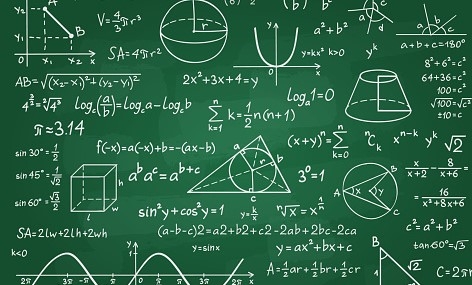You have /5 articles left.
Sign up for a free account or log in.

Tetiana Lazunova/Getty Images
Consider two scenarios:
- You are a high school student who lives in the suburbs and excels in mathematics, acing two years of algebra and geometry. When you take Advanced Placement calculus as a senior, you find that all those A’s don’t get you anything. You struggle with calculus and give up on mathematics.
- You are a high school senior at an urban high school that doesn’t have much money. You earn A’s in every mathematics course available, but your school doesn’t offer calculus.
Needless to say, there is a third scenario, in which a student excels in mathematics and also in calculus. Taking calculus in high school gives her a head start on her STEM education in college.
The problem is that hundreds of thousands of students believe they will benefit from calculus, and relatively few of them are in that third scenario. The first two scenarios describe far more students, according to a new report released by Just Equations and the National Association for College Admission Counseling.
The report is not anticalculus; it acknowledges that, for some students (those whose high schools offer it and who are preparing to study engineering, for example), taking calculus in high school makes sense. But for many other students, calculus isn’t the math course that will most help them—the right course often is statistics.
But most admissions counselors have favored calculus (in many cases informally), the report says, and that hurts students.
“Taking calculus is considered a priority by many families who want to put their teens in the sweet spot for competitive college admissions,” the report says. “For decades, the course has been the highest math course offered at many high schools, reinforcing perceptions that calculus is a must-have for those seeking admission to competitive colleges and universities. Not all high schools even offer calculus, and access to the course is stratified by race and income. Few colleges and universities stipulate calculus as a universal requirement for admission and it is not included among any state’s high school math standards. Still, conventional wisdom says that applicants with calculus on their transcripts have an advantage.”
Potentially the biggest surprise in response to the report is the reactions of experts on mathematics and science education. They strongly support the recommendations. In fact, the preference of many in admissions for calculus runs counter to the views of many STEM educators at the high school and college level.
What the Report Says
Only 19 percent of high school graduates took calculus in high school, although the numbers are much higher for those going to a competitive college. The numbers vary widely by race. More than half of Asian high school graduates took calculus, compared to 22 percent of white students, 14 percent of Latinos and 9 percent of Black students. Among those in the highest quintile of socioeconomic status, 37 percent took calculus, while only 9 percent of those in the lowest quintile took it.
Why do so many students (even though a minority of them) take calculus?
“Rather than enroll in calculus because they loved math or had an inherent interest in STEM, the most common [survey] answer (81 percent of respondents) students gave for taking the course was, ‘AP Calculus looks good on college applications,’” the report says. “As one high school math teacher lamented, ‘The goals of most high school students taking calculus are focused on college admissions rather than mastery of the content.’”
Calculus isn’t actually required to get into most colleges.
Fewer than 5 percent of respondents to a survey—all at private institutions—said calculus was a blanket requirement for all or most majors. “More common (21 percent) was a requirement for calculus for those who seek admission to study engineering, physical science, math, technology or business,” the report said. “Yet some colleges still advise high school students to take the course. In conversations with admissions officers, private colleges and universities were more likely to recommend calculus for all applicants than their public counterparts. ‘Calculus is the gold standard that people in this business use as a shortcut,’ said one dean of admissions at a selective, private university.”
The report praises the University of California system and Stanford University for changing official requirements.
“Before 2018, Stanford’s recommendations for prospective students read ‘four years (including calculus),’” the report says. “Then they were revised to call for four years of math focused on fundamental skills in algebra, geometry and trigonometry. A more recent revision, published in 2021, prescribes ‘any’ rigorous preparation in fundamental math skills and lists calculus, statistics and data science together as courses it ‘welcomes.’”
But actions like Stanford’s are too few, the report says. “Though AP Statistics squeaked into the top four on the list of courses with the most weight in admissions, it was cited by half as many admissions professionals as AP Calculus and ranked considerably lower than pre-calculus,” the report says. “A majority (61 percent) of respondents said statistics is not as rigorous as calculus, with private colleges and universities more likely to answer this way (65 percent) than public ones (57 percent).”
The report calls for high schools to better inform students of whether they will need (or use) calculus, and for colleges to reward advanced work in mathematics—regardless of whether it is calculus. (There is an AP course in statistics that would help many students, the report notes.)
Math and Science Groups Respond
The reaction to the report from math and science groups was positive, in part because math and science groups have been saying such things—and apparently being ignored by many in admissions—for years.
As far back as 2012, the National Council of Teachers of Mathematics and the Mathematical Association of America issued a statement that said, “The ultimate goal of the K-12 mathematics curriculum should not be to get students into and through a course in calculus by 12th grade. Instead, the aim should be to have established the mathematical foundation that will enable students to pursue whatever course of study interests them when they get to college.”
Shirley Malcom, a senior adviser to the CEO of the American Association for the Advancement of Science, said she views the issues “as less about calculus and more about equity.”
Many students attend high schools without a quality calculus program (or any such program), “and favoring calculus” in admissions “creates barriers for those students.” The fact is that “there are a lot of colleges where those students don’t receive serious consideration for admission,” Malcom said.
In some fields, such as physics and engineering, “calculus matters,” she said. But those fields shouldn’t dictate the courses for all students, she said.
David M. Bressoud, the DeWitt Wallace Professor of Mathematics Emeritus at Macalester College, agreed that calculus is important for those students. But that has “distorted” math education for more than half of high school students, he said.
Bressoud was on the AP Calculus committee of the College Board and saw all the evidence that that there are benefits for students who study for the exam.
“But it’s pulling the oxygen away from other efforts,” Bressoud said, especially for disadvantaged students.
Expressions of support also came from within the world of admissions. Beth A. Wiser, executive director of undergraduate admissions at Ohio State University, released this statement: “Central to Ohio State’s holistic review process is to assess the rigor of a student’s curriculum in the context of what is available to them in their school. Our degree pathways are designed so that students can pursue STEM programs without completing calculus before enrolling. The report serves to spark important dialogue within our professional and our academic units to support both access and success to all areas of study.”
Kasey Urquídez, vice president for enrollment management and dean of undergraduate admissions at the University of Arizona, said via email, “Our general admission policy does not require calculus. Most students going into STEM fields tend to have this level of math or pre-calc.”
She said, “Our team does look closely at rigor of curriculum and preparedness in math, but does not seek calculus out as the key course toward success. There are many advanced math classes in which algebra II is a requirement and will serve students well toward success.”
Urquídez added, “The equity question is really important in these discussions as we know not every student has the opportunity to take such advanced math course due to offerings, trained teachers, etc.”
Broader Changes in Admissions
David Hawkins, chief education and policy officer at NACAC, said the report is not just about calculus. “One of my most important take-aways is that this is part of the discussion about everything we do, and examining it with an equity lens.”
He noted that standardized tests are now optional at most colleges and universities, And he said NACAC’s report last month urged colleges to evaluate all their admissions policies.
Hawkins said nuance is key to the discussion. “This will not be a cut-and-dried conversation,” he said.
“It shouldn’t be an all-or-nothing approach,” he said. “This is not about jettisoning calculus.”








